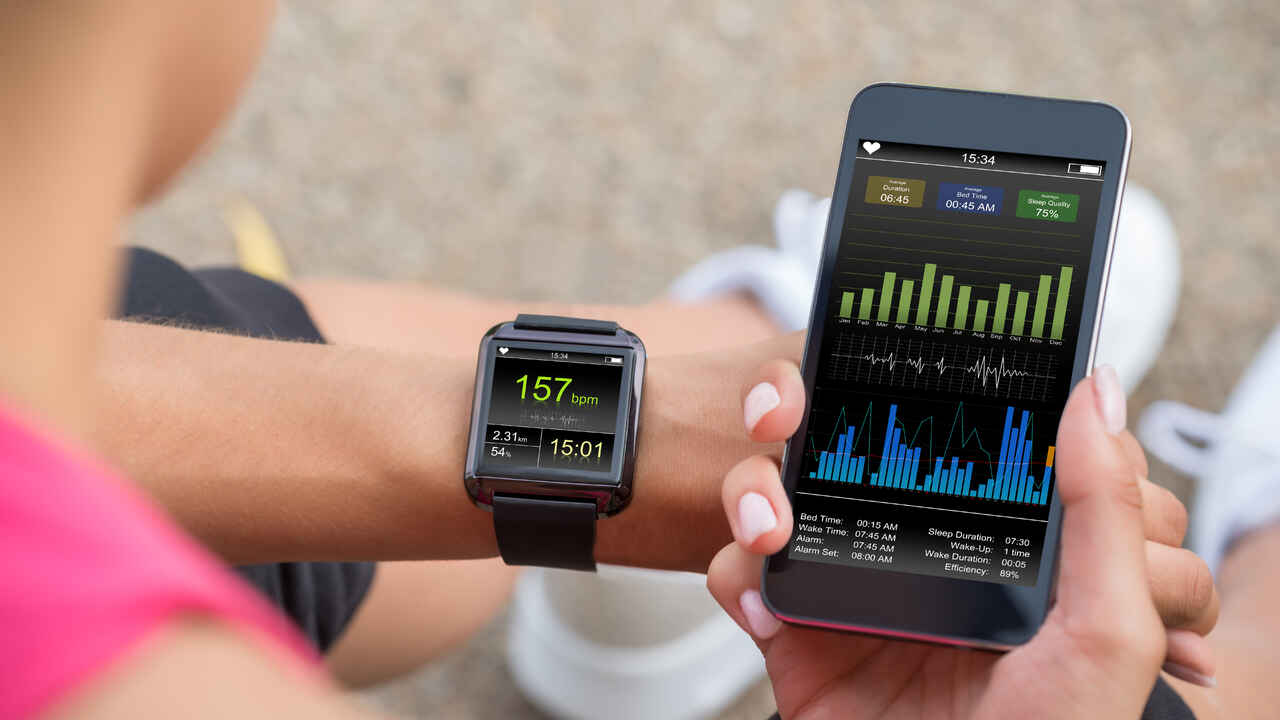 Being glued to your phone isn’t all bad. Here’s how your phone may improve your health.
Being glued to your phone isn’t all bad. Here’s how your phone may improve your health.
Smartphones seem to be getting smarter every day—and that’s both a good and a bad thing. On the one hand, our phones give us access to information and technology that help us live better, safer and healthier lives. On the other, many people find it hard to disconnect from their electronic devices because there’s so much vying for their attention right at their fingertips.
There are negative effects of spending too much time glued to your phone screen. These include:
-
-
- Insomnia and poor sleep: Blue light emitted from your cell phone signals your brain to stay awake, which makes it more difficult to fall asleep and wake up the next day.
- Eye strain: Too much time spent looking at screens can cause fatigue or discomfort in your eyes, as well as dimmed vision. This strain can lead to headaches.
- Addictive behaviors: Studies show people can develop addictive behaviors to smartphones and social media, including thinking about them constantly and feeling uneasy when not using them.
- Neck, shoulder or back pain: Sitting for hours looking down at a phone and typing places strain on the neck, shoulders and back, which can lead to tightness and pain.
- Reduced physical activity: Time spent on any type of screen is time spent being inactive, and usually sitting. Being too sedentary can lead to obesity and various health problems.
-
The good news is that not everything about using cell phones is bad for you. Put the time you spend looking at your phone to good use by downloading and using apps that can improve your health. Here are some popular wellness apps to try:
-
-
- MyFitnessPal: This food tracking app includes an easy-to-use database that offers nutrition information for millions of different foods, including restaurant meals. This can help you track calories and macros and make healthier food decisions.
- Headspace: This app allows you to choose mini guided meditation sessions specific to your mood and lifestyle. It offers a wide variety of programs to help with sleep, anxiety and stress.
- Fitplan: This app offers step-by-step video training sessions, ranging from 20 to 90 minutes, from professional trainers and athletes.
- SleepCycle: This app monitors your sleep patterns, making note of disruptions like snoring or sleep talking. It wakes you during your lightest sleep phase so you feel well rested.
- HealthTap: Experiencing a strange ache or pain? This app enables patients to connect with a physician to answer health-related questions.
-
These are just some of the many ways you can use your phone that help improve your health. Cell phones can now also help you manage medical conditions as well. For example, cell phones can help you monitor your heart rate and blood sugar levels. They can remind you to take medication. And they can provide valuable medical information to health care personnel during a medical emergency if you are unable to communicate.
There’s no doubt that spending too much time glued to the screen of your phone isn’t a good idea. But there are many ways that the same phone that keeps you distracted and sitting too much can also help to improve your health—and maybe even save it.
Copyright 2021 © Baldwin Publishing, Inc. All rights reserved.
Health eCooking® is a registered trademark of Baldwin Publishing, Inc. Cook eKitchen™ is a designated trademark of Baldwin Publishing, Inc. Any duplication or distribution of the information contained herein without the express approval of Baldwin Publishing, Inc. is strictly prohibited.
Date Last Reviewed: August 12, 2021
Editorial Review: Andrea Cohen, Editorial Director, Baldwin Publishing, Inc. Contact Editor
Medical Review: Perry Pitkow, MD
Learn more about Baldwin Publishing Inc. editorial policy, privacy policy, ADA compliance and sponsorship policy.
No information provided by Baldwin Publishing, Inc. in any article is a substitute for medical advice or treatment for any medical condition. Baldwin Publishing, Inc. strongly suggests that you use this information in consultation with your doctor or other health professional. Use or viewing of any Baldwin Publishing, Inc. article signifies your understanding and agreement to the disclaimer and acceptance of these terms of use.